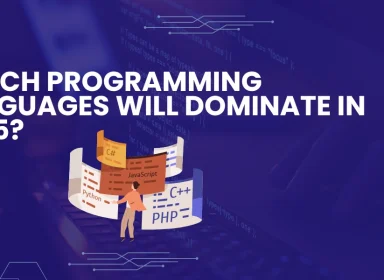The world of software development changes quickly. Every year, new tools and technologies shape the way we build websites, mobile apps, and enterprise software. At the heart of all these changes are programming languages—the tools developers use to write code and bring software to life. As we step into 2025, it's important to ask: which programming languages will dominate?
Knowing which languages will be most in-demand helps students, professionals, and businesses stay ahead. Whether you're learning to code, hiring developers, or planning a software project, understanding the trends in programming languages is critical.
In this blog, we’ll explore the top programming languages that are expected to lead the tech industry in 2025. We’ll look at their use cases, advantages, community support, and why companies continue to rely on them. Let’s dive into the future of coding and see which languages are worth learning in the years to come.




